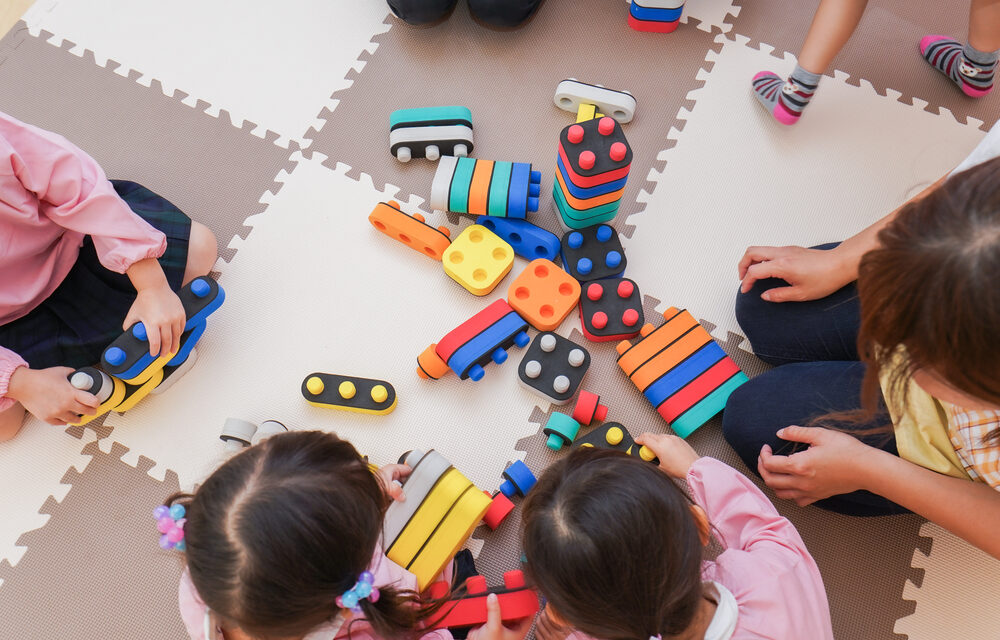Educational games are more than just fun. They are powerful tools for improving children’s mental abilities. These games guarantee that children stay focused while learning important skills by easily combining fun and study. Here are some ways that educational toys for kids help early learners’ cognitive development.
1. Enhance Problem-Solving Skills
Educational games often involve difficulties, puzzles, or situations requiring decisions. These parts motivate kids to think critically, consider their options, and come up with solutions to issues. For example, children learn to examine situations and come up with creative ideas through board games or logic-based tasks.
2. Boost Memory and Retention
Children who play memory games must remember facts, patterns, or patterns. This improves their quick recall and strengthens their capacity to remember information. Games that provide a fun way to practice memory skills involve pairing card games and quiz tests.
3. Encourage Logical Thinking
Logical thinking is promoted by games that include numbers, sequences, or categorization. Kids can better understand complex ideas and develop their logical abilities by participating in activities like kid-friendly Sudoku or basic math-based board games.
4. Promote Focus and Attention
Playing interactive games helps improve a child’s focus in time since it requires focus and attention to detail. Children learn to avoid distractions and maintain focus while participating in these activities.
5. Build Language and Communication Skills
Language abilities, grammar, and vocabulary can all be improved by educational games that include role-playing, storytelling, or wordplay. For example, activities that require kids to solve puzzles or build phrases improve their ability to express ideas.
Key Benefits of Educational Games
1. Development of Fine Motor Skills
Many educational toys for kids, such as building blocks and drawing activities, require attention to detail. These games improve accuracy and skill along with fine motor skills.
2. Fostering Emotional Intelligence
Children learn good communication, sympathy, and teamwork through collaborative tasks or online games. These skills are crucial for developing connections and increasing emotional intelligence.
3. Encouraging Creativity
A child’s imagination is encouraged by games that involve storytelling, art, or drawing. Children can develop their creative side, think creatively, and express themselves in unique ways with these kinds of activities.
Examples of Educational Toys for Kids to Make Their Minds Sharp
1. Puzzle Games
- Help with problem-solving and pattern recognition.
- Strengthen critical thinking abilities.
2. Building Blocks and Construction Sets
- Improve sense of place and motor skills.
- Encourage creativity and engineering concepts.
3. Interactive Learning Games
- Boost memory, attention, and multitasking.
- Introduce subjects like math, science, or history in a fun format.
4. Storytelling and Role-Playing Games
- Enhance language and communication skills.
- Develop sympathy and social awareness.
5. STEM-Based Games
- Introduce foundational concepts of science, technology, engineering, and math.
- Foster logical thinking and innovation.
How to Select the Right Educational Toys for Kids?
1. Age-Appropriate
To keep the child interested, make sure the games you want to play are at a suitable age.
2. Skill Development Goals
Identify which skills you want to focus on, such as memory, creativity, or problem-solving.
3. Interactive and Fun
Look for games that are enjoyable and active to maintain interest and excitement.
4. Durability and Safety
Choose toys that are either safe or made of durable, high-quality materials.
Why Educational Toys Are a Must for Young Learners
Educational games are more than just entertainment. They are important in developing a child’s cognitive skills. They educate kids about problems in the classroom and the real world by promoting continuous growth, problem-solving skills, and flexibility. Parents may make education enjoyable and natural by including educational toys for kids in everyday activities.
Conclusion
Young learners should play some educational games because it helps in the development of the brain. They make learning enjoyable and give them the tools they need for success in life. These games make the children grow overall by boosting their creation skills, problem-solving skills, and improving memory. If you want your child to start the educational journey in the best way possible, visit Skillmatics and see what educational toys for kids are available.





